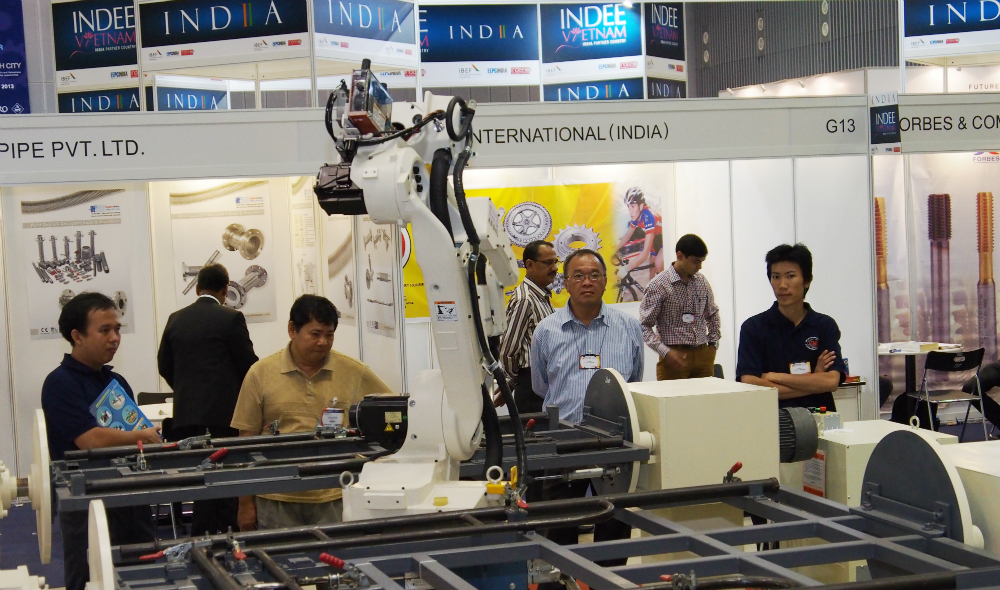The Vietnamese Ministry of Industry and Trade has completed a draft decree on developing supporting industries with the largest-ever incentives in order to give a real boost to the sector considered vital to modern manufacturing industries.
The ministry has stressed the need of incentives for those operating in the supporting industry area as the sector is still in a very primitive stage. This is emphasized from the beginning of the report on the draft decree that will be submitted to the government.
Vietnam currently has only 656 enterprises producing spare parts compared to 58,000 businesses operating in the manufacturing industry - a very small number.
Meanwhile, after studying many aspects, the ministry underlined that without multi-faceted support from the state, it is very hard for local businesses operating in the field to have the chance to be involved in the supply chain of multinational corporations investing in Vietnam.
Moreover, according to the ministry, the underdeveloped state of the local supporting industry has resulted in increased production costs, the risk of bigger trade deficits with foreign partners and low competitiveness of Vietnamese products compared with regional peers due to the imports of components and spare parts, mostly from China.
The top incentives include the exemption of business income taxes for organizations and individuals operating in the field or taking part in the transfer of supporting industry technologies, according to the draft decree.
Specifically, those participating in the process will enjoy corporate income tax exemption for up to four years, and the tax rate will be cut by half in the next nine years.
They will also be refunded up to 50 percent of their capitals if investing in technologies in pollution treatment and environmental protection.
In addition, if their bases are located outside industrial zones, the land rent will be reduced by 50 percent for 11 years.
The state will also support a maximum of 50 percent of funding for the training costs of technical staff of businesses operating in support industries. Each employee is trained only once with a training period lasting no more than six months.
The state budget will also support a part of the cost of advertising in mass media and registering trademarks for the businesses' operations. The funding to participate in the local and international trade fairs and access market information will also be partly covered by the state.
There will also be a pilot program lasting until 2020 that will cut 50 percent personal income tax for individuals working as specialists or trainers in technology transfer in supporting industries for a maximum period of one year.
The incentives also include exemption from import duties for goods imported to create fixed assets for production and products of supporting industries.
The lending rate for projects in supporting industries will enjoy a preferential rate that will not exceed the maximum rate of 80 percent of normal rates for loans with a maturity period of up to 10 years.
Those who join a cluster of supporting industries will be allowed to pay land rent for one time or multiple times. If businesses choose to pay once for all, the rate will be cut by 20 percent.
The development of supporting industries in clusters will achieve the maximum synchronization capacity, optimize the supply and manufacturing process for the final products, and accelerate the allocation of labor and the specialization of labor to a higher level, said the ministry.
As a result, many preferential policies will also be available for investment in the development of industrial clusters.
There will also be centers for the development of supporting industries to be established across the nation.
The support center will help reduce costs for businesses such as the costs of hiring experts, designing, production, product testing, and combined testing and checking of product quality standards to meet the norms of multinational corporations.
At the same time, they will help promote the consumption network inside and outside the country by connecting with local and multinational corporations.
The ministry said that those policies are needed to support this sector before 2018 when the regional free trade agreement takes full effect.
Like us on Facebook or follow us on Twitter to get the latest news about Vietnam!


















































